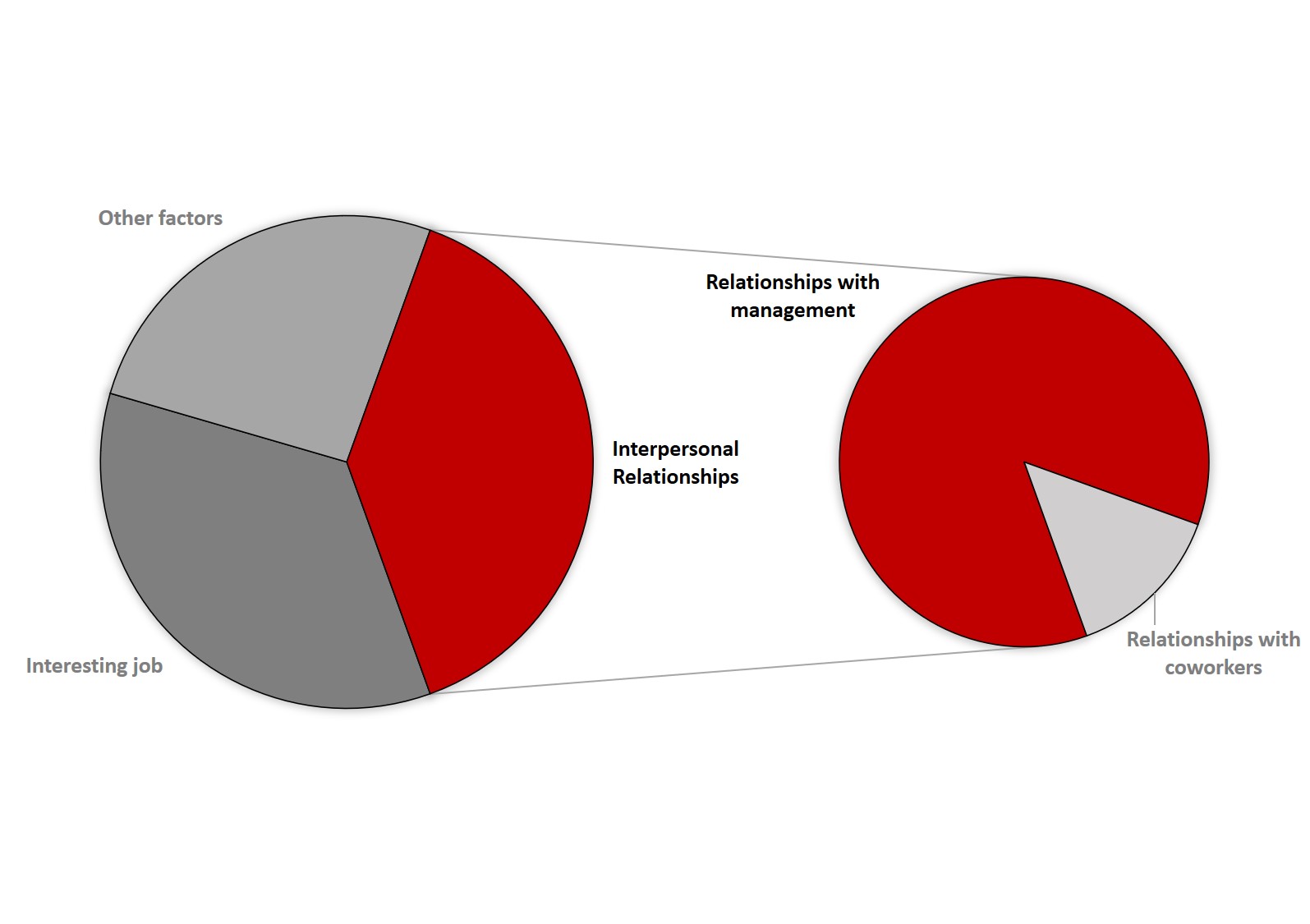Job satisfaction.
It’s easy to describe at a cursory level but incredibly difficult to properly define, understand and measure.
Managers who can consider what job satisfaction means for their people and teams, however, put themselves at a significant advantage.
Job satisfaction is clearly good for employees – that’s the point. It’s also great for managers and employers too. But now a new survey by McKinsey, a research company, suggests that job satisfaction is far more important for managers and leaders to develop than even previously thought.
The core benefits of job satisfaction
| Benefits of job satisfaction for employees | Benefits of job satisfaction for employers and managers |
| · Ability to use skills to the full | · Reduces staff turnover |
| · Alignment with personal goals | · Increases day-to-day productivity |
| · Increased self-worth and confidence | · Much-improved generation of ideas and workplace collaboration |
| · Improved mental health | · Avoids HR issues from absenteeism to tribunal cases |
| · Increased happiness out of work | · Ease of additional recruiting |
Why good managers are worth it
A good manager chooses to consider employee job satisfaction – it’s what makes them an effective leader.
McKinsey discovered that a staggering 39% of employee job satisfaction was down to the interpersonal relationships an employee has in the workplace, with the other single main factor being the work itself. Other factors including; hours, where the work is, the conditions, etc, made up only 26% altogether.
Within interpersonal relationships, however, lies the real key for managers and leaders.
86% of employee satisfaction with their interpersonal relations at work lie with the management.

In other words, if an employee doesn’t like or respect their manager (or their management team), they will almost certainly be dissatisfied at work.
That means they may well leave.
And if you’re a poor manager, that’s actually the best you can hope for.
Because dissatisfied staff who stay with you can cause far worse problems, (‘Active Disengagement’ is a topic for another day).
Take heed.
Your organisation, your results and potentially even your career as a manager will be affected by how well you can balance employee job satisfaction.
You’re the 86%.























